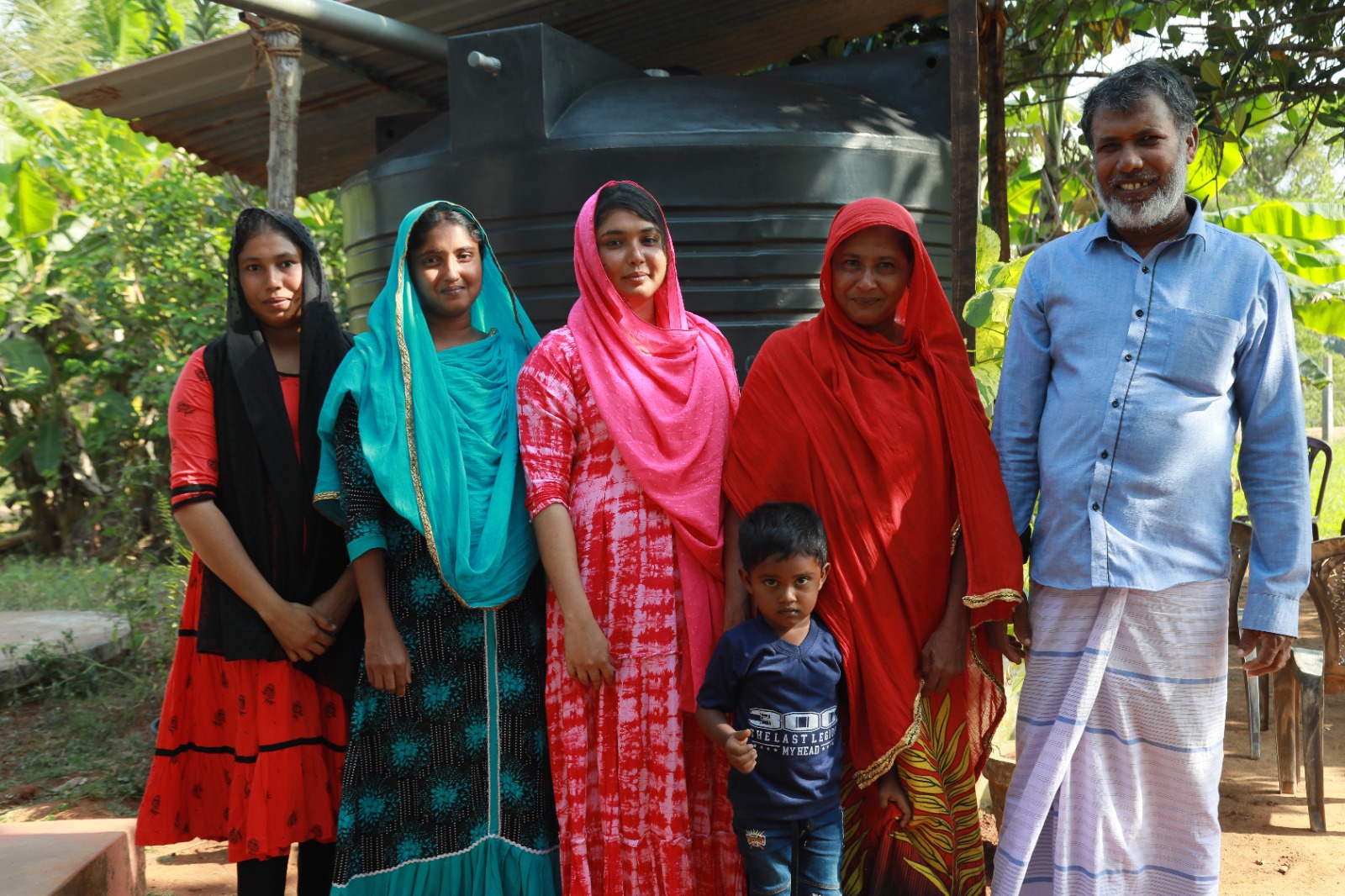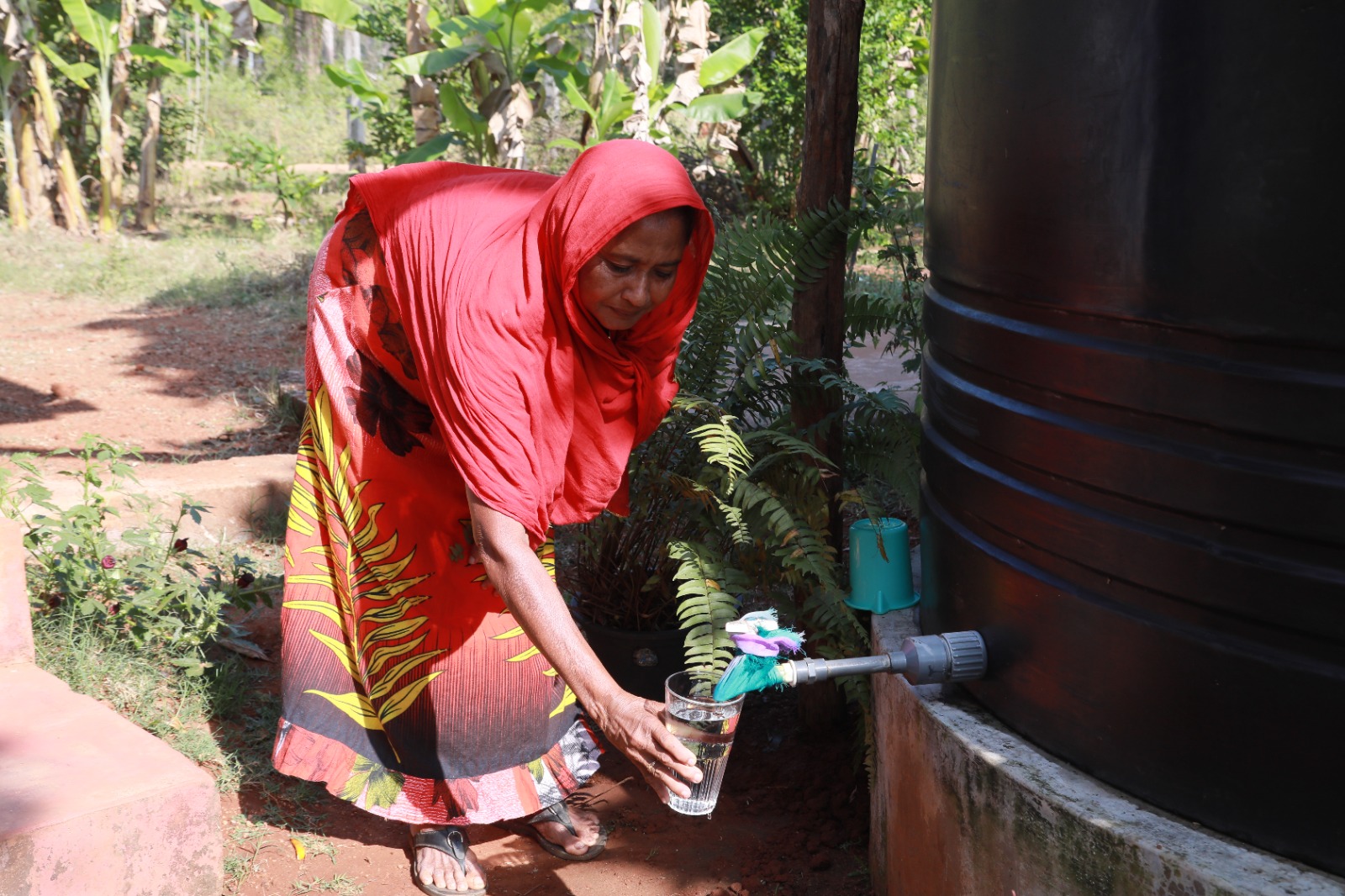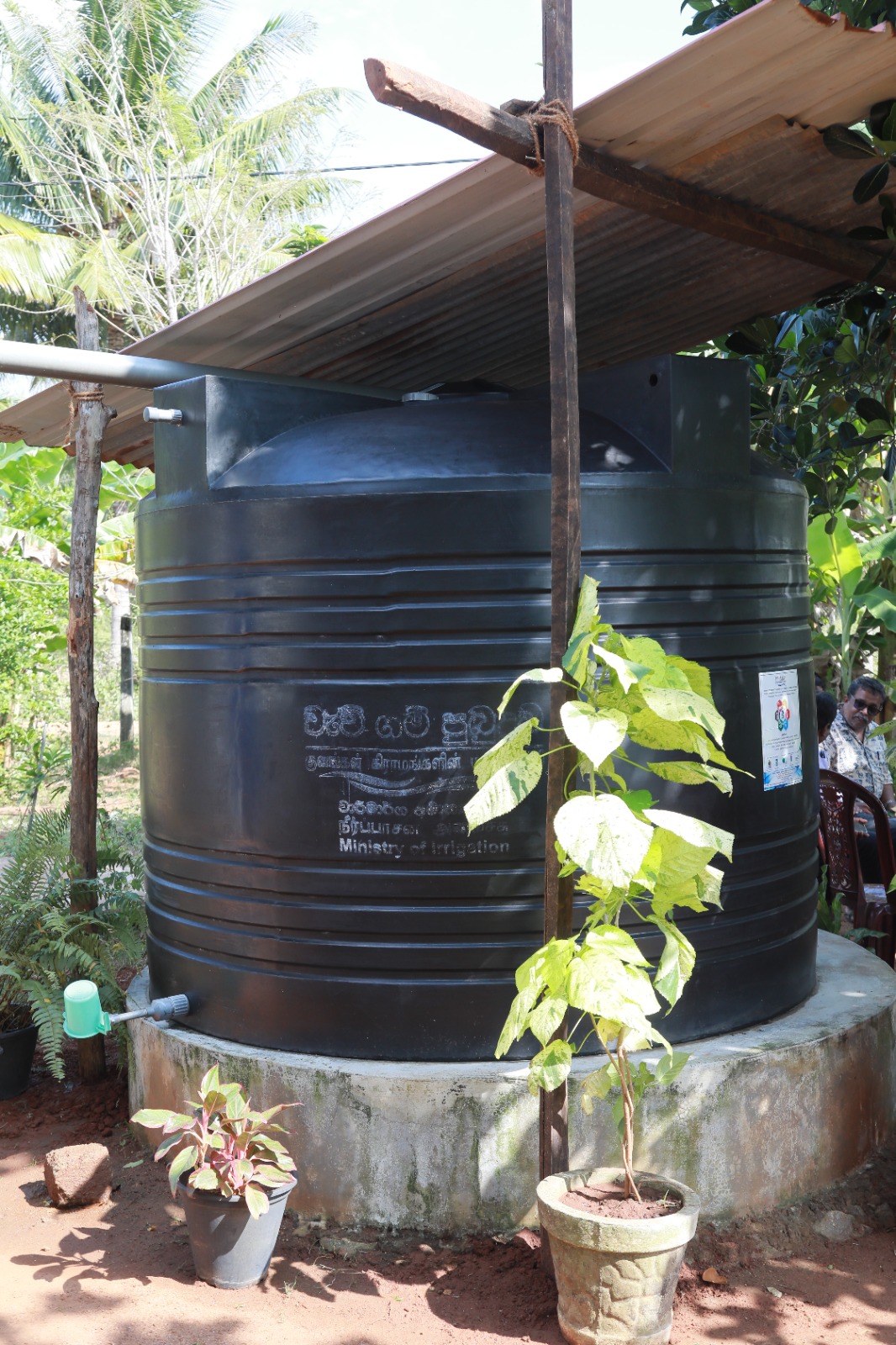A Tale of Resilience, Sacrifice, and the Lifesaving Impact of Rainwater Harvesting
From Thirst to Triumph: Fayiza's Inspiring Journey to Clean Water
September 6, 2023

The Vavuniya District is a dry zone area where people frequently face droughts due to a lack of proper rainfall. Consequently, the groundwater level has started to decrease, affecting livelihoods. The scarcity of drinking water is also increasing. As a result, residents buy filtered or mineral drinking water for money.
CRIWMP, which began in 2018, has provided Rain Water Harvesting System (RWHS) Tanks to selected beneficiaries so that they can use rainwater as drinking water. Based on the selection criteria, Mohamed Ramlan Siththi Fayiza, a mother of five daughters, was selected as one of the beneficiaries.

Mohamed Ramlan Siththi Fayiza with her family
55-year-old Fayiza is a housewife, living in the Mudaliyarkulam Village which falls under the Cheddikulam Divisional Secretariat in Vavuniya. As a low-income family, she and her family make ends meet despite the cash flow being insufficient to meet their food, clothing, education and medical needs. To overcome the dire situation she and her family find themselves in, Fayiza has been engaging in agriculture with the support of her husband and daughters to increase their family income. However, her woes did not end there. Their daily struggle to find clean and sanitary drinking water led the family into even more hardship.
Speaking about her experience she says, "In the early years, we took drinking water from the well. However, the fluoride and hardness of the water has made most of the water in the area unsuitable for consumption without it being pre-treated. This has resulted in our family being forced to buy filtered drinking water for money," she emphasises.

She continues her tale explaining, "There was a need to purchase more than 40 liters of drinking water per day and nearly 1200 liters of water per month. For that, we had to spend more than LKR 2,400.00 per month and more than LKR 28,800.00 per year. In order to afford clean drinking water, we had to make sacrifices and restrict our purchase of food, clothes and smaller items," she says.
"During the rainy season, we even collect the water that spills from the roofs and filter it using clothes and use it for drinking to manage our expenses on drinking water. In the meantime, my third daughter, Rahifa, who is 25 years old, started getting urine infections due to a lack of adequate drinking water, and pain in her joints. Even when medicines were taken for this, she has still not recovered. As a solution to this, the doctors have advised us to drink clean and sanitary drinking water," Fayiza explains.
Grateful for the support provided to their village, Faiyiza notes, "CRIWMP has come forward to provide Rain Water Harvesting System (RWHS) tanks to our village to ensure safe drinking water. 115 RWHS tanks have been given to beneficiaries through this project for the most vulnerable in our village. Based on the selection criteria of the project, we were chosen as one of the beneficiaries as I have five daughters. We will be building the base for the RWHS Tank as a beneficiary contribution as per the requirement."

Explaining the process, Fayiza mentioned that they received training through PALM along with a guide book which clearly notes how rainwater can be collected in the RWHS Tank, including its structure and process, water quality testing, how to maintain the tank hygienically, issues and remedies, water management systems and documentation.
"We are happy to maintain the RWHS Tank by ourselves and it is satisfying to us. We also give rainwater to drink to those who come to our home and we do share the water with our neighbours. We have been using RWHS tank water for our drinking water since July 2021. The water quality test is being done frequently. We are now able to save the money which we used to spend yearly on drinking water and use that money to fulfil our family needs like food and education. Not only that but my daughter is cured and she has no complaints or water-related issues. My daughters and I recommend the RWHS tanks to others too, as we have noticed the improvement in my daughter's health as a result of being able to consume purified rainwater," she says with a smile on her face.
***
CRIWMP is implemented by the Government of Sri Lanka, in seven dry zone districts focusing on three river basins. The United Nations Development Programme (UNDP) in Sri Lanka provides technical support, with funding from the Green Climate Fund (GCF). PLAM coordinates and mobilizes support for the project in the Vavuniya district.
To learn more about the project: CRIWMP Media

 Locations
Locations